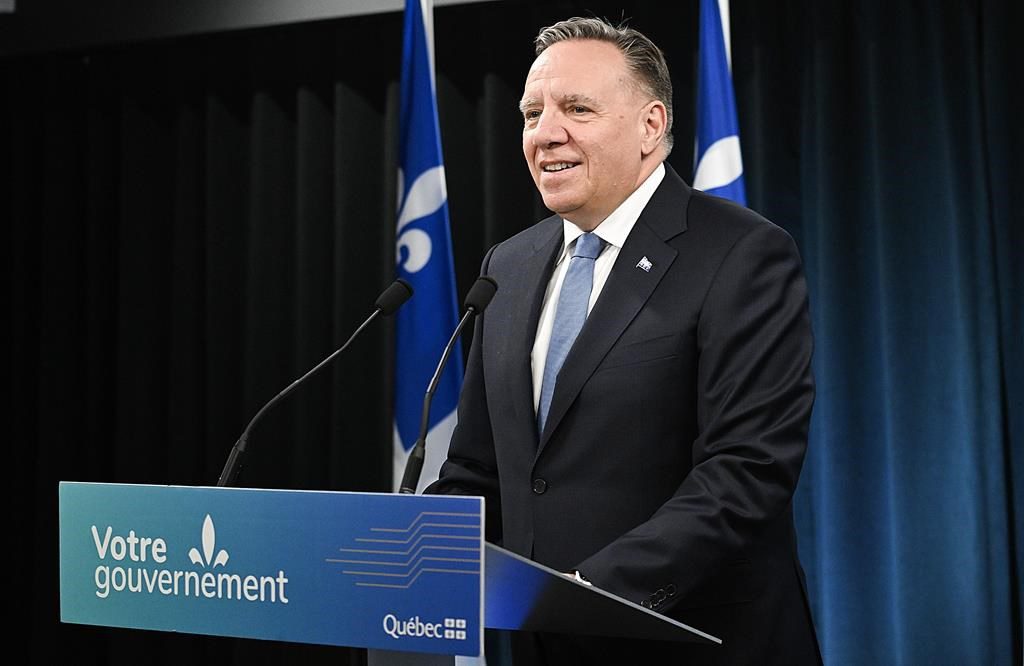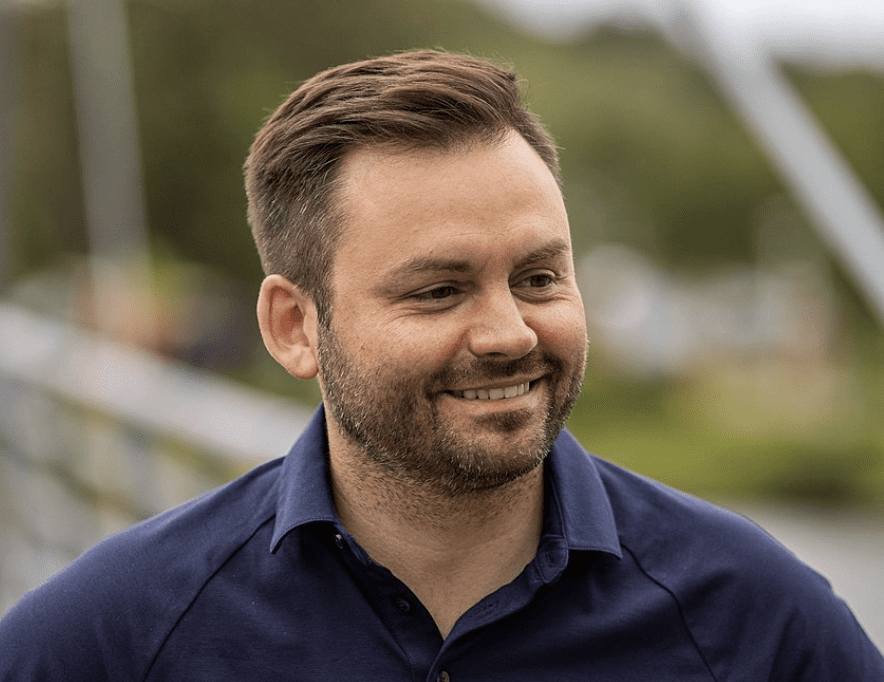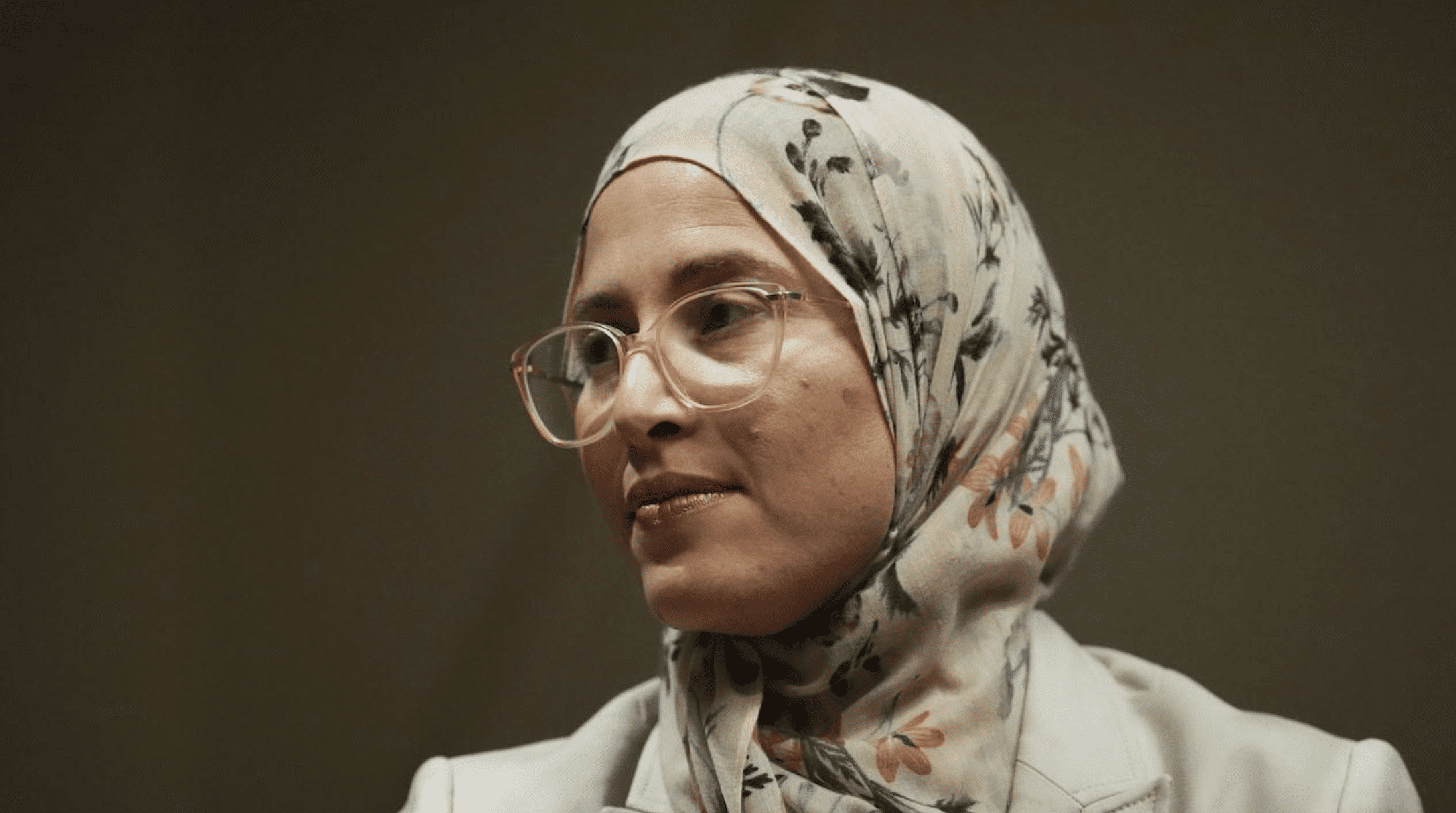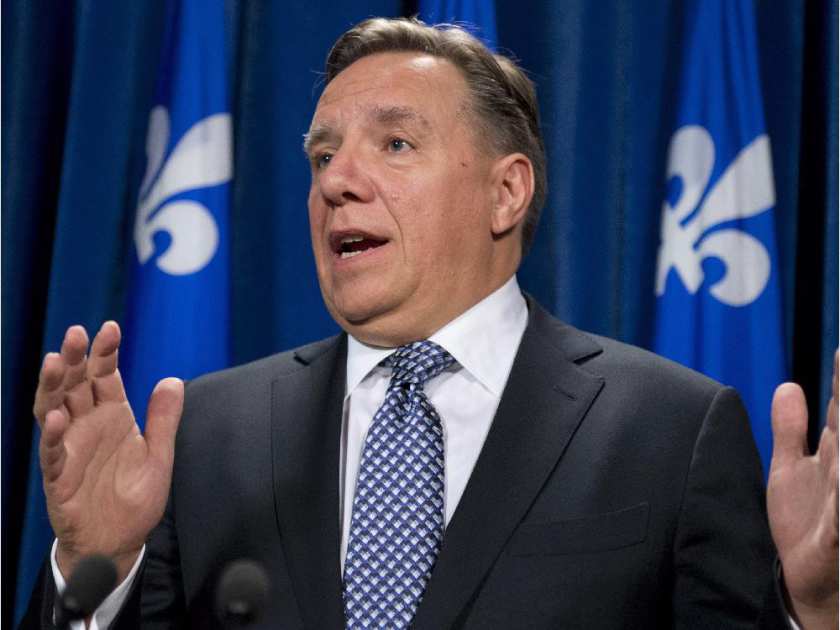This content is restricted to subscribers

The views, opinions and positions expressed by columnists and contributors are the author’s alone. They do not inherently or expressly reflect the views, opinions and/or positions of our publication.

This content is restricted to subscribers
The views, opinions and positions expressed by columnists and contributors are the author’s alone. They do not inherently or expressly reflect the views, opinions and/or positions of our publication.

In Quebec, there is some wind in the ship Independence. For months now, a big part of the political agenda has been set not by François Legault and the CAQ, but by the good old Parti Québécois.
For weeks now, the most interesting water-cooler discussions have been about Quebec’s road to independence, as set by the PQ. The separatist party has launched an ad featuring none other than François Legault gushing about the urgency of achieving independence. The ad was to promote the release of the Year 1 Budget, showcasing how an independent Quebec would not only be financially viable, but advantageous.
The clip is 20 years old, mind you, but it worked. François Legault has taken the bait and commented on the PQ agenda multiple times over the past few weeks. Believing that keeping the Canadian dollar and Canada’s monetary policy would not work out to the advantage of Quebecers, Paul St-Pierre Plamondon is pushing for Quebec to eventually have its own currency.
Not only did Economy Minister Pierre Fitzgibbon take the bait and argue against a Quebec currency, he went a step further: “The currency, I would take the American dollar, I would be very happy.” If the Economy Minister thinks we can discuss which money an Independent Quebec should use, it must mean it is a pretty good idea, no?
This all comes down after an unequivocal victory of the Parti Québécois in a by-election in the Quebec City area. The Péquistes were quick to celebrate Pascal Paradis’ win in Jean-Talon as an historic victory. Certainly, the PQ had never before managed to win the riding before, a riding which was once a liberal stronghold. The PQ came within 25 votes of a victory in 1994, before seeing its vote crumble to the point of finishing 4th place in the 2018 elections, and in 2019 (another by-election). And now Pascal Paradis has obtained more raw votes than former CAQ MNA Joëlle Boutin got in the 2022 election, despite a much lower turnout.
The PQ is on a roll. Some are already thinking about forming the next government. Others, even more enthusiastic, see this victory as a giant step towards independence. We can’t stop people from dreaming.
Paul St-Pierre Plamondon undoubtedly prefers to look at this as a potential turning point, similar to the one set by current Deputy Premier Geneviève Guilbault, who brought down a liberal stronghold in 2017, a victory which paved the way for the Caquistes to take office a few months later.
But the fact remains that, despite Jean-Talon, the Parti Québécois is facing a serious trend, which began more than a decade ago, one that threatens its very existence. The victory of Pascal Paradis does not change the overall picture: the PQ today has only four MNAs in the National Assembly, still fewer than at any other period since 1970.
But for now, Paul St-Pierre Plamondon is hoping to build on this momentum. He wants to restore hope in the heart of PQ activists. He knows there is a lot of work to do. But he won’t frame it as such : “We can call it work, but I don’t see it as a sacrifice, it will happen spontaneously because it will be pride that replaces fear, working with pride. I do it when I make my Christmas tree!” he said to the general council of the Parti Québécois last weekend.
With the support of 98.51% of delegates at the most recent PQ Convention — a score that Lucien Bouchard and Bernard Landry could only ever dream of — the young PQ leader has shown initiative and flair since the last general election. St-Pierre Plamondon has been able to take advantage of a CAQ government showing signs of fatigue, internal divisions within Québec solidaire, the historic weakness of the Liberals and the inability of the Conservatives to break through, even in Quebec City. The challenge now will be to seize this opportunity to rebuild the party and sow a seed in the minds of voters: the PQ has once again become a serious alternative on the Quebec political scene.
The views, opinions and positions expressed by columnists and contributors are the author’s alone. They do not inherently or expressly reflect the views, opinions and/or positions of our publication.

Become a subscriber today!
Register
This content is restricted to subscribers
The views, opinions and positions expressed by columnists and contributors are the author’s alone. They do not inherently or expressly reflect the views, opinions and/or positions of our publication.

Become a subscriber today!
Register
This content is restricted to subscribers
The views, opinions and positions expressed by columnists and contributors are the author’s alone. They do not inherently or expressly reflect the views, opinions and/or positions of our publication.

Become a subscriber today!
Register
Become a subscriber today!
Register
Become a subscriber today!
Register
This content is restricted to subscribers
The views, opinions and positions expressed by columnists and contributors are the author’s alone. They do not inherently or expressly reflect the views, opinions and/or positions of our publication.